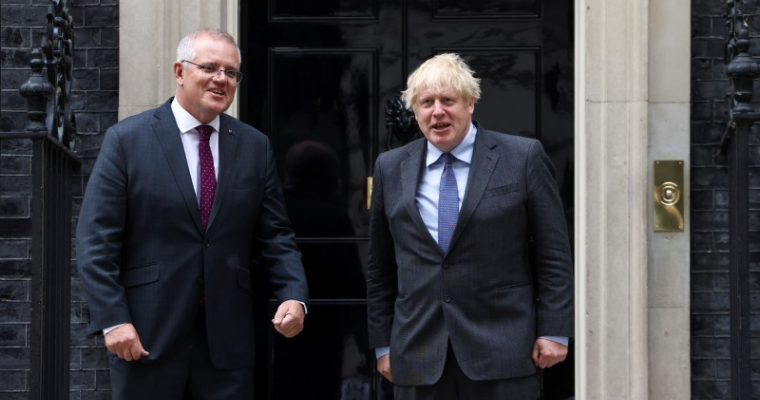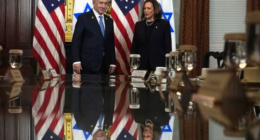A trade deal between the UK and Australia has come to the point of agreeing between Prime Minister Boris Johnson and Scott Morrison. Downing Street has said that the new pact meant British products like cars, biscuits, scotch whiskey, and ceramics. It would be cheaper to sell in Australia.
However, there is a concern from the UK farmers. They have been worried that they may be undercut regarding the price and the standards.
This is the first from the starting since UK has left the EU. It is a very important step towards the UK joining the wider Asia Pacific agreement for free trade.
Borris Johnson has said, “Our new free trade agreement opens fantastic opportunities for British businesses and consumers, as well as young people wanting the chance to work and live on the other side of the world.”
However, this is the new cross-party UK Trade. The Business Commission has reacted with an alarm for the deal, which it says has not been properly assessed.
Hilary Benn said that the prime minister has just spent the weekend arguing with their allies. This is regarding a treaty that he has pushed through the parliament with limited scrutiny. The highlights of the risks are rushing through the deals for a very short-term political gain. At the same time, it is failing to understand their long-term consequences.
Dominic Goudie, the head of international trade, has agreed to help the business to begin and prepare for a new term of trade. These terms must ensure that the consumers have continued their confidence that any of the agreement maintains the animal welfare standards.
The UK government has also signed a long list of trade deals. This new deal could allow the UK to eventually joining a much wider Asia Pacific free-trade agreement. Also, it is allowing for the Comprehensive and Progressive Agreement for Trans-Pacific Partnership. According to the government, it could provide the British farmers with a huge opportunity.
Under this deal with Australia, the farmers will be protected with a cap on tariff-free imports for 15 years. It will make use of the tariff rate quotas and other kinds of safeguards. But some of the UK farmers are having concerns that there will be no useful safeguards to stop their undercut due to cheap imports.
Credits: BBC










Comments are closed.